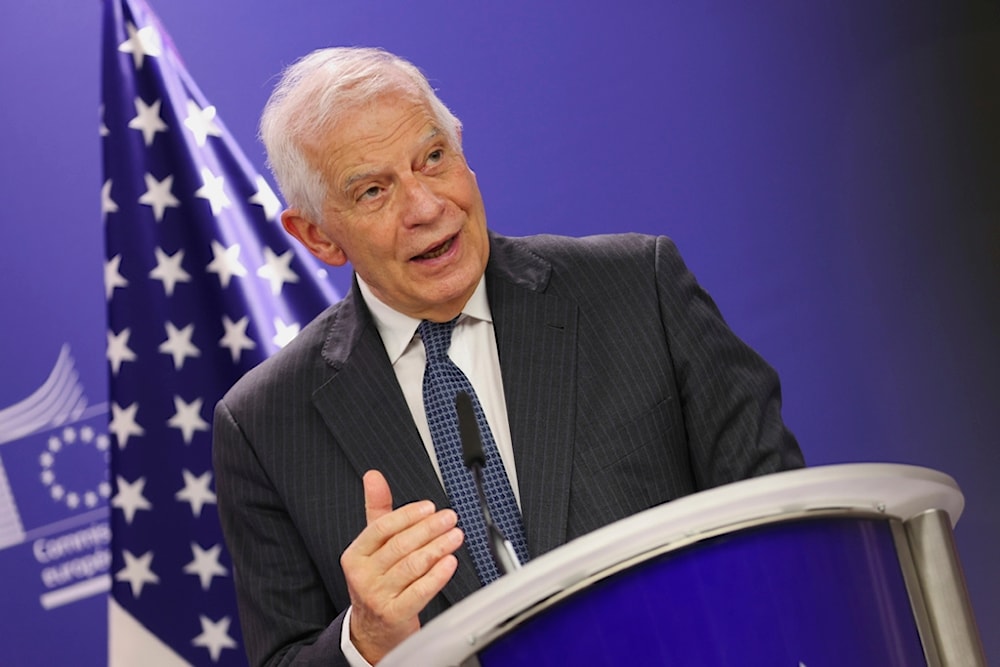Ansar Allah 'quite autonomous,' Iran's control limited: EU's Borrell
Tehran has consistently denied allegations of exerting any influence over resistance movements across the region, asserting that these groups are acting independently.
-

EU High Representative Josep Borrell addresses a media conference after a joint EU-US-Armenia high-level meeting at EU headquarters in Brussels, Friday, April 4, 2024 (AP)
At a news conference in Brussels today, EU foreign policy chief Josep Borrell remarked that Yemen's resistance movement Ansar Allah has become "quite autonomous."
He further noted that the movement's decision-making processes were not "fully controlled by Iran."
"We want to keep channels of communications open with Iran, we have called on Iran to show restraint and to use its influence to avoid escalation and, in particular, with relation to the Houthis. But I do not think Iran has full control of Houthis' decision-making, they have become quite autonomous," Borrell said.
Read more: Yemen, Iran hold mass protests in support of Gaza
Since the start of the war on Gaza, Iran has been alleged by the West to have spearheaded the movement and actions of resistance groups across the region, targeting "Israel" and Israeli-linked elements. But Tehran has consistently denied such claims, asserting that resistance movements are acting independently.
The US has even gone as far as fabricating information, alleging that talks between Washington and Tehran took place on the Red Sea.
The Yemeni resistance has been targeting Israeli and Israeli-linked vessels in the Red Sea, aiming to pressure the Zionist regime to halt its genocidal campaign in Gaza. Transit remained accessible for vessels not affiliated with the regime until the US and the UK formed a naval coalition targeting Yemeni positions along the Yemeni coast.
Despite efforts to force the reopening of the Red Sea, the naval coalition failed to subdue the Yemeni resistance. The latest round of operations involve the targeting of three cargo ships in the Red Sea, Arabian Sea, and Indian Ocean, using anti-ship and cruise missiles. The spokesperson of the YAF Brigadier General Yahya Saree said that the operations were conducted in a span of 72 hours.
Read more: Yemen honored to fight for Gaza: Sayyed al-Houthi
On January 17, the United States announced it officially designated the Ansar Allah Movement as a global terrorist group, citing attacks on naval vessels as a driver of the decision.
In response to the decision, the head of the movement's Negotiating Envoy and top official, Mohammad Abdul-Salam said that the classification "is ironically amusing, coming from the global state of terrorism."
The committee said that its decision is "an honorary badge," highlighting the group's "supportive stance toward the Palestinian people."
On April 3, Tim Lenderking, US special envoy for Yemen, said that Washington would consider revoking its recent designation of Ansar Allah as terrorists if the movement ceases its attacks in and around the Red Sea.
Two days later, supporters of the Ansar Allah movement requested that they be allowed to go to occupied Palestine to fight against the Israeli occupation in support of the Palestinian people.
"We renew our demands that those who are between us and Palestine open safe land corridors [to occupied Palestine] so that we could cast the fury of God upon them with our own hands.

 3 Min Read
3 Min Read










